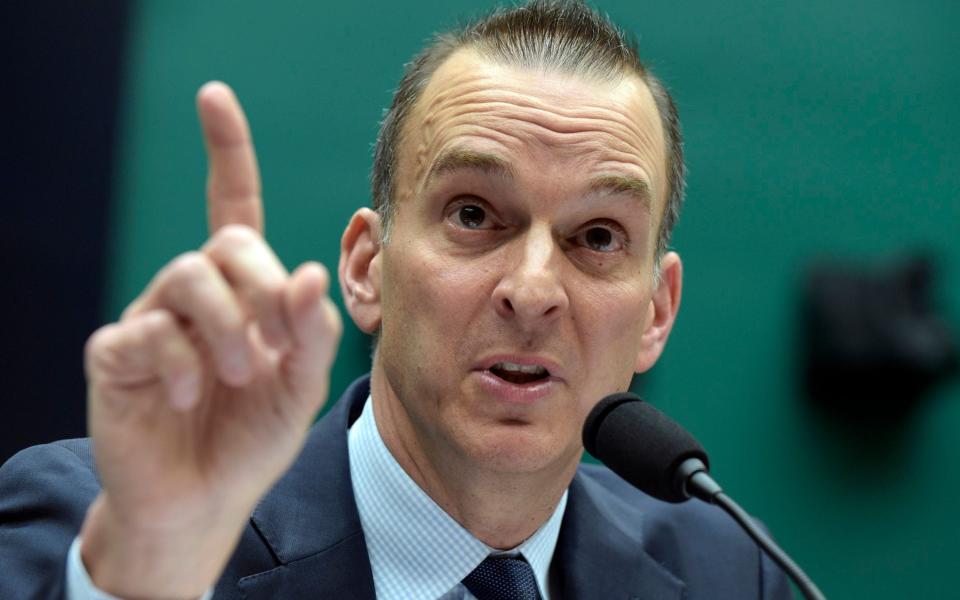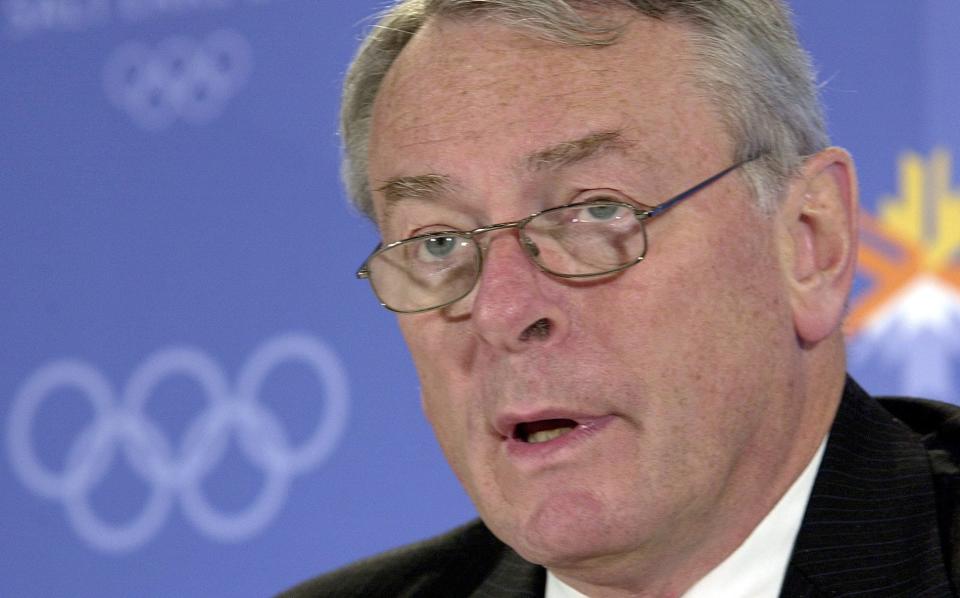With 10 weeks to go until the first race in Center Aquatique Olympique, the swimmers have serious doubts about whether they will start from the same starting blocks.
An atmosphere of paranoia reigns in pool changing rooms and governing body offices following revelations last month that China was quietly spared a ban in 2021.
At last count, at least nine of the 23 athletes who failed the tests but were spared debt three years ago are now qualified, fit and confirmed to compete for medals in July.
The embattled World Anti-Doping Agency is holding an extraordinary meeting this Friday to try to convince a skeptical sporting community that it has acted rigorously in ruling out foul play by China in 2021.
But a sense of deep suspicion has already taken root over Wada’s apparent secrecy in accepting “strong indicators” that 23 tested positive for the heart drug trimetazidine [TMZ] – which can improve performance and moves quickly through the body – was a “case of group infection”.
The experts are still not convinced. “This is worse in people’s eyes, especially among the athletes we’ve spoken to, than previous controversies over Russia,” Travis Tygart, chief executive of the US Anti-Doping Agency, told Telegraph Sport.


Athletes, meanwhile, are talking on WhatsApp groups about potentially breaking the rules banning podium protests in July, but they and national governing bodies hope the concerns can be addressed head-on before then.
The Chinese Anti-Doping Agency (Chinada) had initially determined that the athletes had inadvertently ingested the substance, possibly through a kitchen preparing food for the team.
Regardless of whether such claims are justified, it is the perception of a lack of transparency that is hardest for Wada to explain away, not least because it only came to light in April following investigations by the New York Times and the German ARD Network.
The timing of the case only adds to Tygart’s suspicion that the case has been “swept under the rug.” The 23 were quickly approved for the Tokyo Games. China then hosted the Winter Olympics in February.
“Unprecedented concerns” were identified by an insider who attended an emergency meeting of UNESCO’s International Convention against Doping in Sport. The same group, which is actually responsible for governments formally recognizing the Wada, is now leading the call for more transparency. “The current situation illustrates the gaps in international sports governance and highlights its complexity and the need for open and transparent dialogue between all parties involved,” the convention said. “Governments must identify the ways and means to address these gaps. Going forward, it is critical that governments, Wada, athletes, sports federations and other stakeholders work together to strengthen the principles of impartiality and universality for sports values, ethics and integrity. This includes reviewing decision-making processes and improving communication.”
‘We need answers’
Governments and their regulators are now also stepping in. Britain’s Anti-Doping Agency has not yet publicly criticized Wada, but its officials are known to have called out and expressed support for other, more outspoken figures. The White House’s top drug official, Dr. Rahul Gupta, is among those willing to stick his head above the ground. “Let me underline the extreme concern I have heard directly from American athletes and their representatives about this issue,” he wrote in a letter to Wada last week. “As I have shared with you, athletes have indicated that they are entering the Olympic and Paralympic Games with serious concerns about whether the playing field is level and whether competition is fair.”
With Chris Van Hollen, the U.S. senator in charge of the subcommittee that provides funding to Wada, quoted by the New York Times adding that “we need answers,” Wada then quickly confirmed a foundation board meeting. The embattled organization will vigorously defend its record on Friday after hiring a local prosecutor near its Swiss base to review the handling of the case.
“Wada has been accused of very serious misconduct, yet not a shred of evidence has been provided to support these allegations,” Wada claims. “At every stage, Wada followed all due procedures and diligently investigated every lead and line of inquiry in this case. Wada carefully reviewed Chinada’s decision from every perspective, interrogating every piece of evidence and gathering further information as necessary. As part of his investigation, Wada gathered additional, unpublished scientific information about TMZ and consulted independent scientific experts to test the contamination theory. The irrefutable scientific evidence in this case clearly points to a scenario of environmental contamination, not doping.”
However, for Tygart and four other senior anti-doping officials, who spoke privately to Telegraph Sport, the firm words will do little to allay growing concerns about the credibility of clean competition globally.
Whispers of a potential existential threat facing Wada have upped the ante, with just two months to go before the Games. “We support a strong and independent watchdog 1,000 percent, but that is not what we have right now,” Tygart said. “It is too influenced by sport, which is why there needs to be accountability and restructuring to make the country the global watchdog it really needs to be to protect the rights of clean athletes.”
According to him, the sporting influence and potential political interference are “completely too great”. “They have created a political bureaucratic regime that does what is in the best interest of the sport and not in the best interest of clean athletes, especially in difficult cases, or situations like Russia and now, as we see with these Chinese cases,” he adds. . “The over-regulation that is intended to give the appearance of success must be stripped away.”
Tygart, best known for his role in exposing Lance Armstrong’s massive doping operation, suggests the organization has lost its way over the course of a decade. “We want to return Wada to what it once was under Jacques Rogge’s presidency of the IOC and Dick Pound and John Fahey, at Wada, where it was truly an independent organization acting in the best interests of clean athletes,” he added.


It appears reforms would be welcomed by Britain’s Olympic medalists past and present. “As an athlete you want to be treated fairly [have] full transparency and ensure that results are achieved in those cases [positive test] are not hidden and are not kept secret,” Adam Peaty, the record-breaking breaststroke champion, said last month. “Many swimmers are very disappointed in Wada.”
Sharron Davies, meanwhile, says a growing number of swimmers on the frontline feel “very let down and have very little confidence in Wada”. She still vividly remembers the sense of powerlessness she felt in 1980 after a state-sponsored baptist stripped her of a gold medal. “It was very clear,” says Davies, recalling her emotions before facing East German Anabaptist Petra Schneider. “Incredibly discouraging, frustrating and powerless.”
Nearly half a century later, she says the latest generation of medalists deserves reassurance that they are competing on a level playing field. “Unfortunately, both China and Russia are pumping huge sums of money into international sport, enabling a fantastic lifestyle for those who participate. My hope is that one day sports organizations like the IOC will not center the athlete’s bank balances.”
Whatever the outcome on Friday, there is little hope that the crisis will not remain a major talking point in Paris. World Aquatics, the global swimming body formerly known as Fina, is also under scrutiny after being invited to review evidence provided by Chinada. According to the Times newspaper, Fina has decided to share the evidence only with the chairman of the Doping Control Review Board, Dr. Jordi Segura, and not with the other members.
The most awkward scenes of all for Wada, however, will be that of Wang Shun, who qualified last month despite being among 23 failed tests, and took on Britain’s Duncan Scott and others. If there are further suspicions of possible foul play, the sport’s anti-doping authority will struggle to stay afloat in Olympic waters.